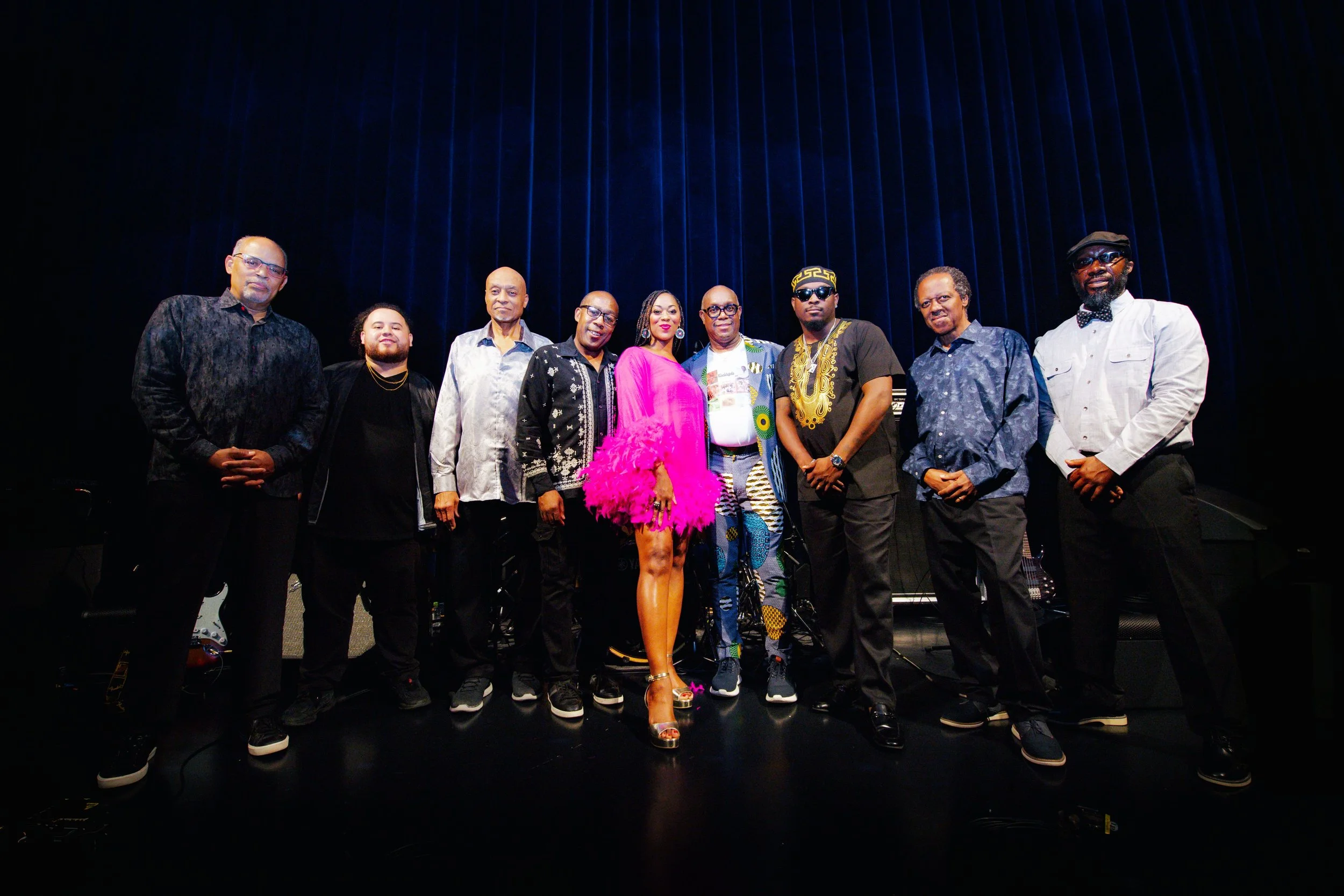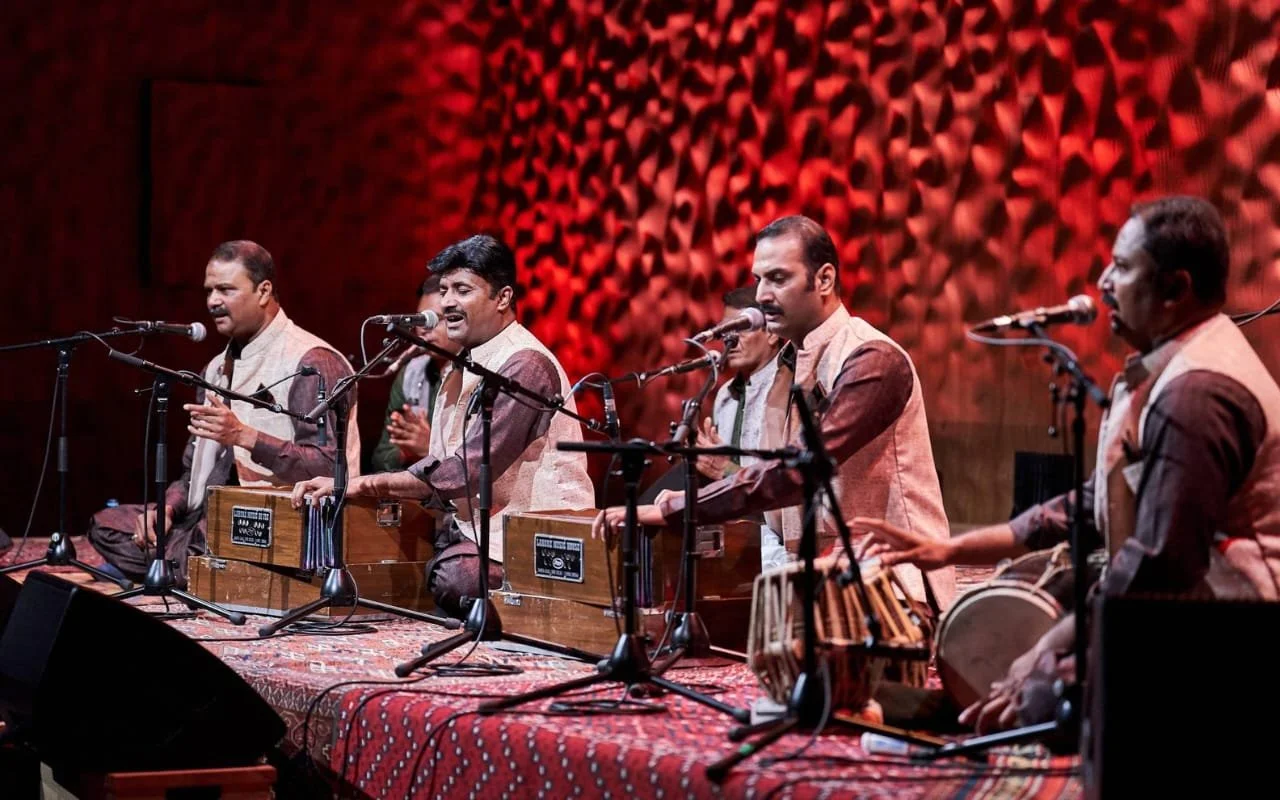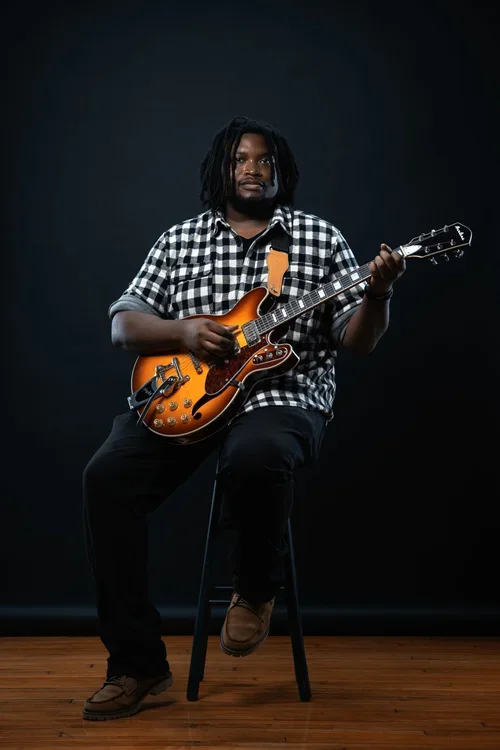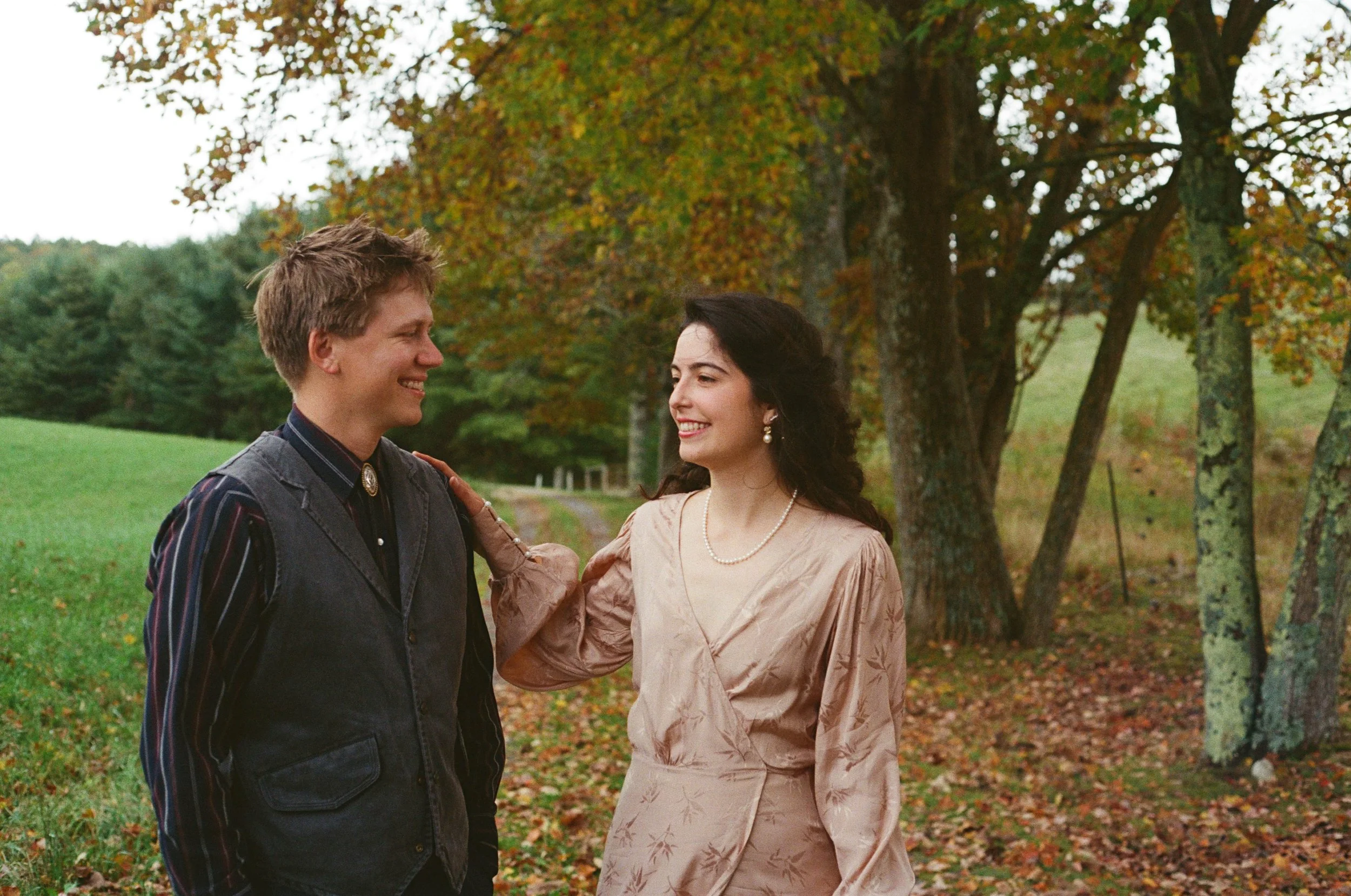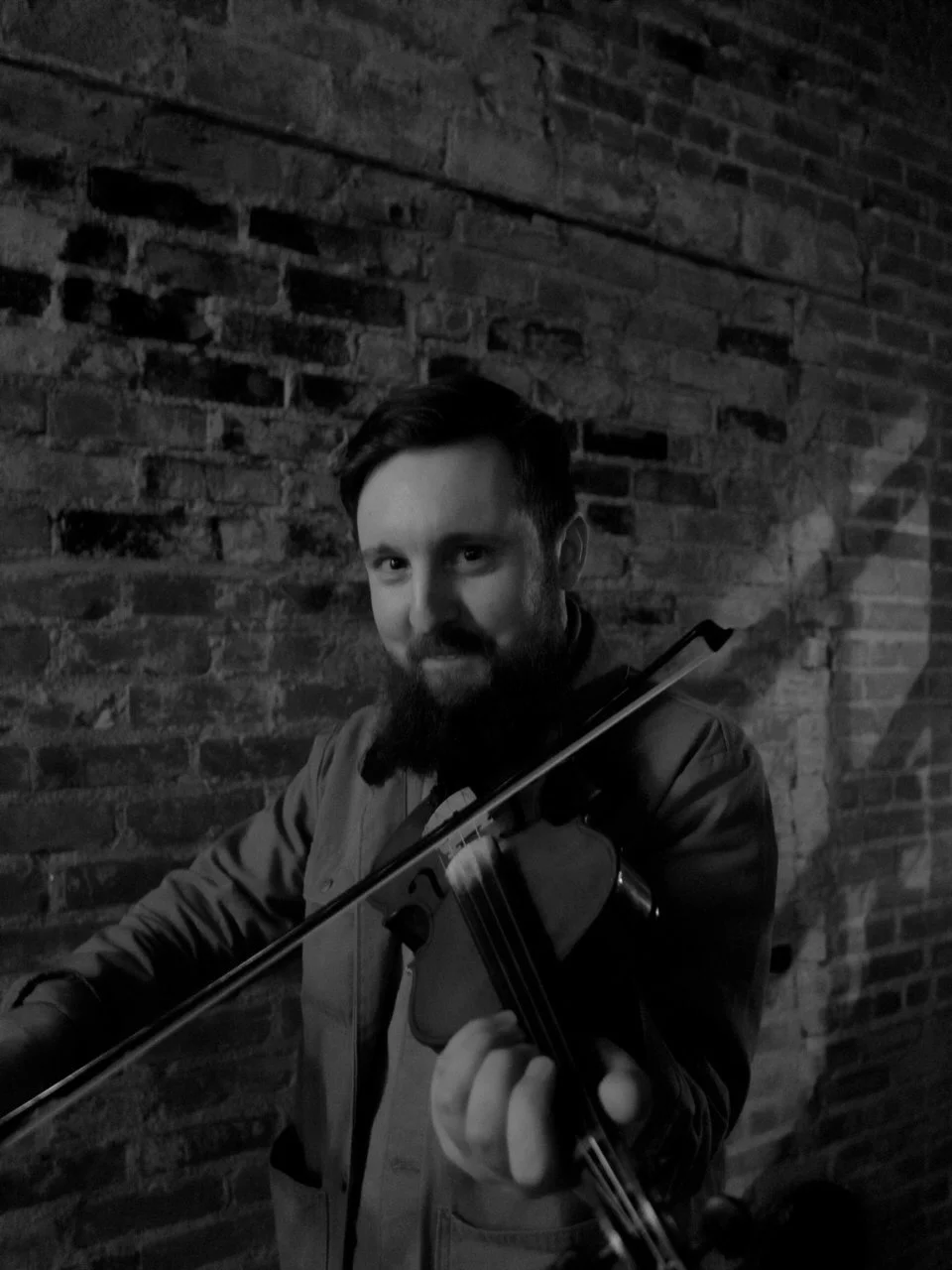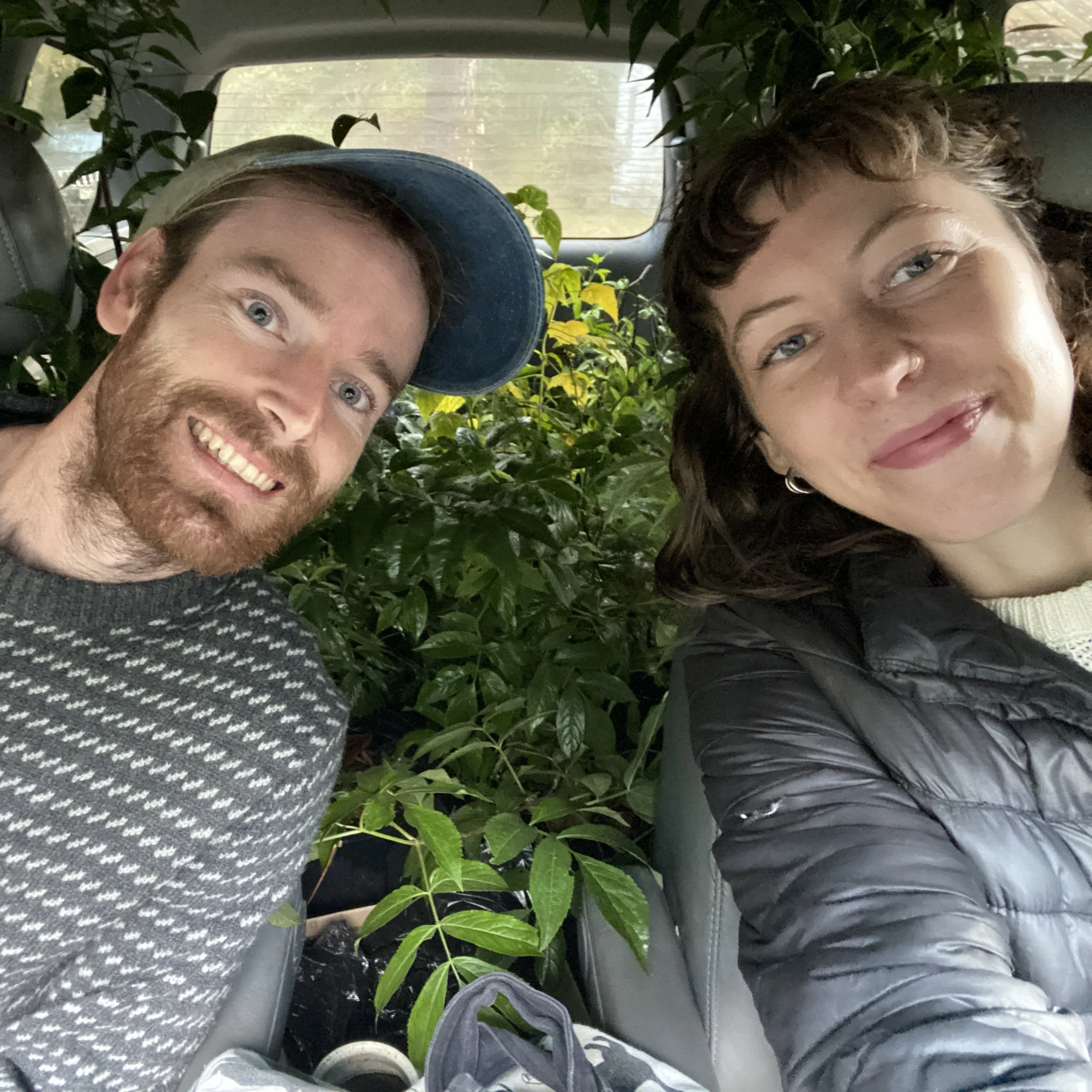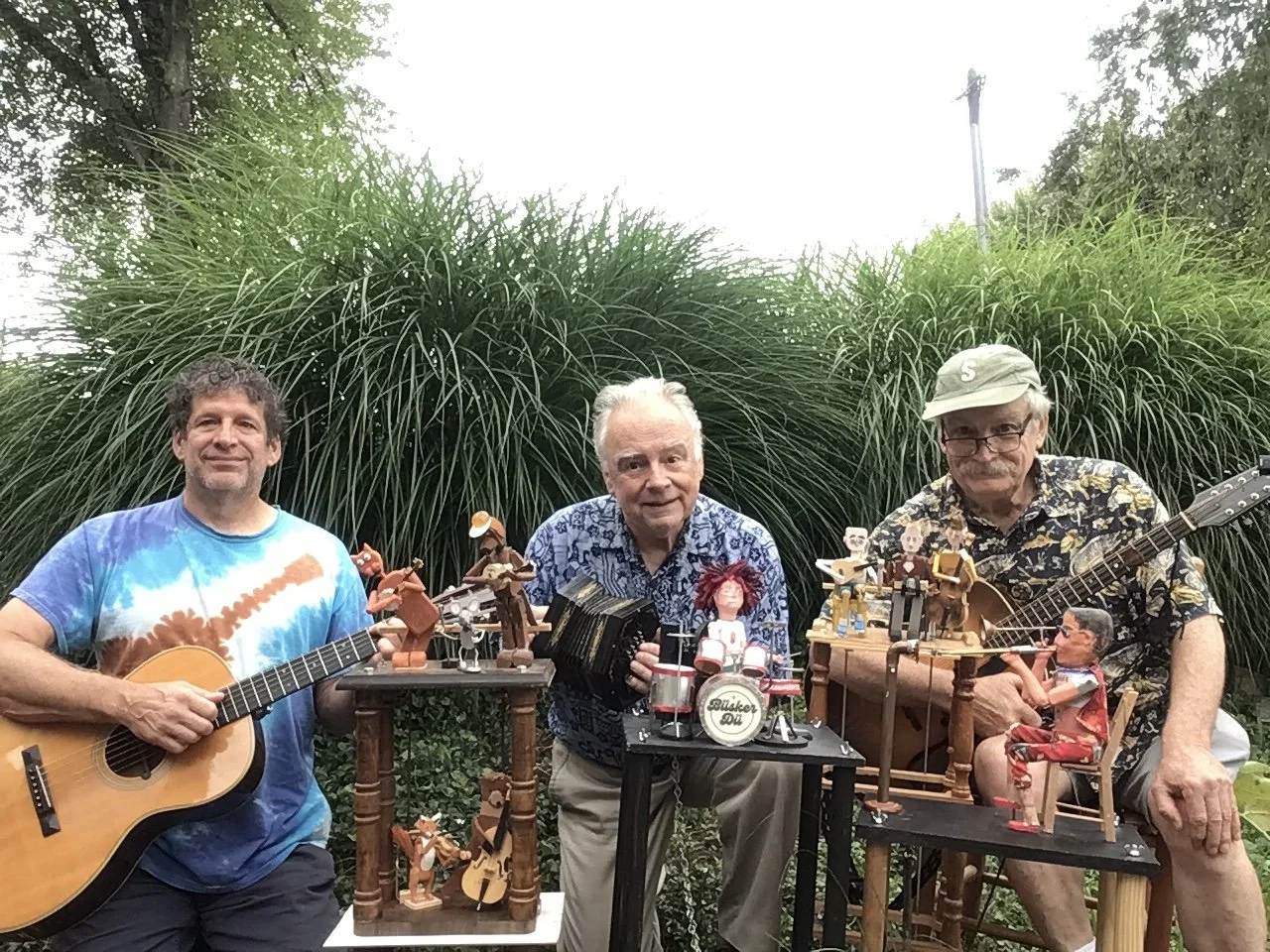Artists
The Richmond Folk Festival has grown to become one of Virginia’s largest and most anticipated events of the year. The Festival strives to present the very finest traditional artists from across the nation. In making its selections, a local Programming Committee is guided by the Folk and Traditional Arts definition, which is the guide for the National Council for Traditional Arts and the National Folk Festival, as well as the National Endowment for the Arts.
Festival in Schools
The Richmond Folk Festival fills auditoriums and classrooms at Richmond-area schools with performances and presentations of deeply rooted cultural expressions, shared by some of the country’s finest traditional artists. Read more about this amazing outreach program.
Applications for the 2025 Festival Now closed
2025 Richmond Folk Festival artist applications are now closed. Programming discussions take place from December to May with most decisions complete by June 1st in preparation for the annual festival. All artists must follow the same process, and those interested in applying should see How to be a performer at the Richmond Folk Festival for more details.
artists performing in 2025
bluegrass
Fancy Gap, Virginia
For a musician celebrated as one of the top female singers and bandleaders in bluegrass music, it’s surprising that Amanda Cook kept her vocal talent hidden from everyone but her grandmother well into her twenties. Even her husband, a childhood friend-turned-high-school-sweetheart, had not heard her sing. Now fans around the country recognize her crystal-clear voice and passionate delivery of some of the most compelling songs in bluegrass today. The rapid success of her eponymous band has led to incredible opportunities; the band is “still riding the wave of excitement from our Opry debut last spring,” an energy they bring with them to Richmond this fall with their captivating, hard-driving sounds.
beat ya feet dance
Washington, D.C.
Beat Ya Feet Academy (BYFA) is a powerhouse organization that focuses on “Engaging, Educating, and Empowering” youth and adults through “beat ya feet,” D.C.’s distinctive street dance culture. Under the direction of John “Crazy Legz” Pearson III and Porche’ “Queen P” Anthony, BYFA brings an intergenerational team of youth and community dancers to represent this dance that Queen P describes as “an expression of freedom with a lot of bounce.” Like go-go, beat ya feet tends to evolve every decade, and BYFA’s presentations in Richmond will bring the audience on a journey through the vibrant history of the form, which is now on the cusp of a new era.
jazz, R&B, and funk
Washington, D.C.
The Blackbyrds were at the cutting edge of jazz fusion, R&B, and funk in the 1970s, pushing the boundaries of Black popular music forward in one of the most musically fertile decades of the past century. Established in 1973 in Washington, D.C., the group was originally brought together by legendary jazz trumpeter Dr. Donald Byrd. Byrd recruited some of the most talented students from Howard University’s jazz studies program, which he had helped found a year earlier in response to demands for a shift away from a European-centric curriculum and more Black studies courses. As an academic with an active music career, Byrd wanted to “bridge the gap between academia and the real world” by exposing college students to the actual music business of touring and recording. Though the original group ended their recording career in 1980, their signature sound combining jazz techniques with R&B, polish, gritty funk, and even a little sanctified gospel became a bedrock of the emerging hip-hop movement. Keith Killgo reformed the Blackbyrds in 1999, and the band recorded Gotta Fly in 2012. Their appearance at the Richmond Folk Festival coincides with the 50th anniversary of the legendary “Rock Creek Park.”
juré
Opelousas, Louisiana
The Broussard house in Opelousas, Louisiana, was always full of music. Every member of the family sang or played an instrument, and several are renowned zydeco musicians. During Lent, though, according to Millie Broussard, “You weren’t supposed to be going to the dancehalls,” or playing instrumental music—they sang juré instead. Most people outside of Louisiana have not heard of this a cappella tradition dating back to the antebellum era, and it is rarely performed outside the state, until recently. Growing up in the tradition, the Broussard Sisters—Sandra Broussard Davis, Virginia Ballard, Tavian Seraile, and sister-in-law Millie—have assumed the role of cultural stewards and ambassadors, keeping the music alive for the next generation and sharing it with audiences in Louisiana and beyond.
Québécois
Montréal, Québec, Canada
Cécilia brings joy and virtuosity to the rich strands of Eastern Canada’s Québécois tradition. Each member of the trio—accordionist Timi Turmel, pianist Erin Leahy, and fiddler Louis Schryer—grew up in a musical family and brings a deep passion for the tradition to the stage. Though just three players, they create a big band sound through clever arrangements, shifting harmonies and textures, and propulsive playing. Cécilia’s music has an undeniably fresh and high-spirited sound, while honoring their roots, creating a unique and infectiously energetic musical experience.
blues
Houston, Texas
While following in the footsteps of many Texas blues greats, Houston’s Diunna Greenleaf has her own distinctive style, an intense yet playful combination of gospel, jazz, R&B, and soul. Equal parts tremendous power and passion, her voice is also capable of subtlety and nuanced inflections. As she puts it, “If you are a Texas singer, you need to be able to sing strong and clear—people need to understand what you are saying when you’re up there. But you also need to be able to sing soft and pretty.” While the rest of the world didn’t discover Diunna until she had reached middle age, over the last two decades, she has earned numerous well-deserved awards and accolades.
Togolese
Lomé, Togo, by way of Washington, D.C.
The West African nation of Togo is a bit of a musical black box, long overshadowed by nearby musical powerhouses like Ghana, Nigeria, and Côte d’Ivoire. But Togo has an untapped wealth of music traditions, as well as a few breakout artists. Singer and guitarist Serge Massama Dogo, aka Dogo du Togo, is the latest Togolese artist to bring his country’s musical traditions to international stages, mixing alagaa trance music with contemporary African pop sounds to fashion a distinctive sound rooted in Togolese music and ritual. The driving alagaa rhythm, a dizzying dance between snare drum and rhythm guitar, forms the bedrock of the band’s sound. “The alagaa beat brings the energy right away,” Dogo explains. “As soon as you bring it in, it just feels different; it takes you somewhere else.”
sacred soul and gospel
Memphis, Tennessee
Elizabeth King is a sacred soul and gospel singer from Memphis, Tennessee, known for her powerful voice, decades of ministry through music, and a life story rivaled by few others. Born in the Mississippi Delta and raised in a family of singers and preachers, King began singing in church at the age of three, using her voice both to battle chronic illness and to express her deep faith. Now in her 70s, she has recently returned to performing professionally; listening to her music, you would never know she took a decades-long break. With Memphis as her long-time home, King combines classic gospel lyrics with electric guitars and sparse percussion on songs that exemplify the city’s blues-inflected sacred soul and gospel sound.
classic country
Austin, Texas
Celebrated for her profoundly observational lyrics, her “homespun sensibility,” and a voice that curls like a croon from a gramophone, Melissa Carper plays old school country music that resonates across time and place. Carper’s repertoire weaves together the threads of old-time, bluegrass, western swing, jazz, and blues that all intertwined in country music before the recording industry drew artificial lines and slapped on race-based genre labels. Veteran Nashville musician Chris Scruggs highlighted Carper’s versatile traditionalism when he dubbed her “Hill Billie Holiday,” declaring, “She’s as good as it gets. She has a quality that really transcends time and fashion.”
reggae
New York, New York
Ever since reggae burst out of West Kingston’s shantytowns in the late 1960s, this uniquely Jamaican sound has looked to Africa for lyrical and spiritual inspiration—and it didn’t take long for it to take Africa by storm. Senegalese-born singer Meta Dia adds his voice to that diasporic Afro-Jamaican dialogue. In 2002, Dia immigrated to the United States, arriving in New York City, where he plugged directly into Harlem’s unique mix of Senegalese and Afro-Caribbean immigrants. He collaborated with various hip-hop artists, but his ears pulled him towards reggae, and in 2006 he put together Meta & the Cornerstones, forming a diverse sextet of like-minded musicians from across the city.
Hawaiian falsetto singing
Honolulu, Hawai’i
Raiatea Helm is one of the preeminent female vocalists carrying Hawaiian music into the future while keeping the flame for its distinctive falsetto singing tradition. At age 14, gifted a CD of the legendary Lena Machado, the matriarch of Hawaiian falsetto singing, Raiatea knew she had found her calling, and she quickly became a celebrated singer of leo ki‘eki‘e (falsetto singing), and a master of the ha‘i, its striking, emotional transition from low to high registers. Raiatea’s career is distinguished not only by her prodigious talent but by her sustained investment in researching and passing on the rich legacy of the islands’ traditional music. She comes to Richmond with an ensemble of all-star musicians who help her build a sound that “stings with the nostalgia of yesterday while at the same time carrying the promise of tomorrow.”
Armenian
Fresno, California
Richard Hagopian is America’s foremost player of the oud, a round-bodied and short-necked lute, and principal instrument in Armenian music. Widely acclaimed as a virtuosic musician, he is esteemed in diasporic Armenian communities and beyond for his dedication to preserving Armenian culture. He has conducted decades of research on Armenian music and dance, recorded several albums, and taught master classes around the country. Among his many honors, Richard received a 1989 National Endowment for the Arts National Heritage Fellowship, the nation’s highest honor for folk and traditional artists. Richard has passed down his passion for Armenian music to several generations of his own family, and three generations of Hagopians will join each other on stage in Richmond.
qawwali & khayal
Karachi, Pakistan
The Saami Brothers are from a heralded Pakistani musical family with a long lineage of master vocalists that goes back centuries. Their father, the revered Ustad Naseeruddin Saami, who, still in his 80s, has a rarely heard depth, power, and presence on stage, taught his sons from a very young age. Having learned at his feet, the Saami Brothers, along their father, represent the last living practitioners of a rarely heard 49-note microtonal vocal scale. Well-versed in several South Asian classical traditions, including qawwali and khayal, the Saami Brothers, with their father, are among the finest ensembles keeping the flame for these sublime sacred sounds.
Hopi hoop dance
Phoenix, Arizona
The story of how the Sinquah family became hoop dancing legends contains a unique twist: the father learned the dance from his sons. Moontee Sinquah, now a world champion hoop dancer at the Senior level, did not pick up the hoops until he was 40, inspired by his then-teenage sons, Sampson and Scott Sixkiller Sinquah, who learned from an early age. Now these three extraordinary dancers perform together, hoping to ignite that same passion for their tradition in a new generation. Individually and together, Moontee, Sampson, and Scott have performed around the world at powwows, festivals, and even the Olympics. Now the tradition extends to a third generation as Scott’s four-year-old, Sonny, follows his relatives’ footsteps. As Sampson Sinquah says, “The hoop is a representation of the cycle of life ... there is no beginning and no ending, always ongoing.”
Cuban son
Miami, Florida
Son Qba brings together some of Cuba’s most distinguished musical veterans to play a deep repertoire of Cuban classics. Led by bassist Cristóbal Verdecia, this Miami-based quartet specializes in son, one of the foundational sounds of all Cuban popular music. The group stands out for their commitment to keeping son alive in the 21st century by performing time-tested Cuban standards with sensitivity, reverence, and virtuosity.
zydeco
Opelousas, Louisiana
Jeffery Broussard & the Creole Cowboys are standouts in the zydeco scene, delivering pack-the-floor renditions of Creole classics as well as their own rollicking brand of traditional zydeco. The band is led by accordionist and vocalist Jeffery Broussard, one of the most influential musicians working in zydeco today. Broussard makes a point of passing on his musical knowledge to the next generation, counting his own children among the many young musicians he’s taught over the years. As he says, “By playing traditional music, that is my way of giving back to my community, to my culture, and to get others interested in the music, in other parts of the country, and to fulfill my Daddy’s dream.”
música norteña
Los Angeles, California
Villa 5 brings youthful energy, flair, and style to música norteña, the music of their parents’ native northern Mexico. Their name is simple and direct—the band features five Villa siblings, Lizbeth, Joel, Vanessa, Iliana, and Jasmeen—but their story contains multitudes. Raised by working-class immigrant parents on a ranch in Southern California, the Villa siblings found inspiration in their cultural roots and embraced the possibility of creating their own legacy in a new home. Mostly in their early 30s, Villa 5 has built their name and reputation by imbuing deeply traditional music with the savvy visual and media sensibilities of their generation.
Kuchipudi dance
Lansing, Michigan
As cultural traditions take root in diaspora communities, new connections between generations and cultures are both necessary and revitalizing. Right after the pandemic, acclaimed young dancer Yamini Kalluri, a master of the Kuchipudi dance of her Telugu forbearers, began a collaboration with some of the finest Carnatic musicians in the country, adding a new depth to her captivating movements. Their appearance at the Richmond Folk Festival braids together these two strands of South Indian tradition into a spellbinding presentation of their shared heritage.
Artists performing on the Center for Cultural Vibrancy Stage
classic bluegrass and country
Floyd, Virginia
Mining the fertile common ground between bluegrass, early country music, and traditional mountain music, The Alum Ridge Boys & Ashlee are one of Virginia’s torchbearers of the old time sound. Featuring the classic quintet of fiddle, banjo, mandolin, guitar, and bass, the band comprises five masterful musicians and singers who have immersed themselves in the dance music traditions of the Blue Ridge region and developed a deeply rooted old time and bluegrass sound.
Ashville, NC
Americana
Anya Hinkle is a distinguished American singer-songwriter whose music captivates with its blend of Appalachian roots and contemporary folk influences. Known for her soul-stirring voice and evocative songwriting, Anya has carved out a significant niche in the Americana and folk music scenes. With a career that spans more than a decade, her artistry reflects a deep appreciation for tradition while pushing the boundaries of the genre.
Appalachian and Brazilian traditions
Virginia and Brazil
If there’s one thing you can count on at the Center for Cultural Vibrancy Stage, it is the presence of multi-instrumentalist and musical genius Danny Knicely. You can also be sure he’ll be up to something new. Danny has the uncanny ability to thrive in and elevate most any musical situation, and often melds the Appalachian folk music of his youth with the expansive types of music he has encountered in the diverse cultural communities of the U.S. and the world.
Bomba y Plena
Richmond, VA
Bomba y Plena are two distinct, yet often mentioned together, Afro-Puerto Rican musical traditions. They both express Puerto Rican resistance, resilience, and cultural identity, but have different origins, instruments, and rhythms.
Gospel
Richmond, Virginia
Richmond, Virginia, has long been celebrated as a “Gospel town” for its legacy of vibrant Black gospel groups and choirs. Among the city’s generations of countless groups, the Legendary Ingramettes have become widely considered the city’s “First Family of Gospel,” uplifting audiences for more than six decades while becoming beloved cultural icons in the community. Music is one of many forms of ministry they have practiced, and the one they are most famous for.
Bluegrass
Meadows of Dan, Virginia
From the mid-1970s through early 1990s, bluegrass experienced a musical evolution. The high lonesome mountain vocals and deep country sound of first-generation bluegrass bands were augmented by a rock and roll energy and attitude. Bands like J.D. Crowe & the New South, Boone Creek, and, of course, the Lonesome River Band were key in creating this new sound.
Brass Band
Richmond, Virginia
While most people associate funk-infused brass bands with New Orleans, the No BS! Brass Band has soundly put Richmond on the genre’s map. Founders Reggie Pace and Lance Koehler formed this 11-piece powerhouse band in which nearly every member has had conservatory training, holding various degrees in music. In putting together the compositions and arrangements, the “b.s.” has been stripped to give the audience something solid, unique, organic, real, and powerful.
Classic Soul
Petersburg, Virginia
Born and raised in nearby Petersburg, Virginia, Rodney Stith has quickly become one of Virginia’s most beloved classic soul and R&B artists. Petersburg has traditionally been better known for gospel music than soul or R&B, although local Petersburg record shop owner Ben Allen recorded several local doo-wop and R&B groups in the late 1950s for his Nu-Kat Record label, including The Velvatones, The Five Roses and, most prominently, the Continental Five. Still, the musical heartbeat of Petersburg’s African American community remained in the church.
Richmond, Virginia
Join us for a very special set on Sunday afternoon as members of Richmond’s musical community come together in support of and love for one of the city’s favorite sons.
Virginia Folklife Area Demonstrators
Pottery (Pamunkey)
King William, VA
Allyson Gray is a citizen of the Pamunkey Indian Tribe of Virginia and a potter working within one of the oldest continuous ceramic traditions in North America. She continues to use traditional handbuilding methods and tools, meticulously shaping each vessel before finishing it through pitfiring — an ancient method that uses open flame to harden clay and create natural variations of smoke and fire. The process leaves behind rich blacks, soft grays, and earthy tones, making every piece unique and marked directly by the fire itself.
Decoy Carving
Chincoteague, VA
John Arthur Leonard’s family has lived on Chincoteague Island since the 1670s. When he was thirteen, he bought his first decoy, sparking a lifetime of collecting and honing his carving. At seventeen, he began carving with advice from most of the masters on the island and is now a world-champion decoy carver. Arthur is a community leader of Chincoteague — he has served as Mayor, is an island historian, part owner of the Refuge Inn, tour boat Master Captain, football coach, baseball coach, and devoted father and grandfather. Arthur also helps each year with the Chincoteague Pony Swim.
Pottery (Mattaponi)
King George, VA
Autumn Morningstar Custalow Alfaro was born and raised on the Mattaponi Reservation in King William County, VA. She has a strong love for her indigenous culture, community, and artistic expression. From a very young age, thanks to her grandmother, Autumn has been deeply involved in learning Mattaponi traditions and participating in tribal community events. “Passing along this knowledge to our youth has become a high priority in my life,” explains Autumn.
Eel Pots (Patawomeck)
Fredericksburg, VA
Brad Hatch is an enrolled citizen of the Patawomeck Indian Tribe, serves as the Chief Judge on the Tribal Council, is a traditional knowledge keeper, and trained archaeologist focused on material culture and historic preservation. He earned his BA in historic preservation from the University of Mary Washington, his MA in anthropology from the College of William and Mary, and his PhD in anthropology from the University of Tennessee. His research focuses on community, identity, and material culture in the Potomac River Valley and he is one of three remaining master makers of the Patawomeck eel pot. Brad is a lifelong resident of White Oak, in Stafford County, Virginia, and, like the majority of his tribal community, lives fewer than 10 miles from the ancestral villages along Potomac Creek.
Appalachian Baskets & Heritage Apples
Page County, VA
Clyde Jenkins grew up in an old homestead in the Shenandoah Mountains in Page County that his family has inhabited for generations. Working the land, he has derived many skills from the eighteenth and nineteenth centuries including basket making and heirloom apple growing. For Riverlore, Clyde will be sharing examples of historical Appalachian fish straps, creel baskets, as baskets used to carry oysters. He’ll also be showing his heritage apples.
Old-Time Music
Meadows of Dan, VA
The Shelors: Dayne and Cassidy Shelor are part of a musical legacy in Meadows of Dan, VA., that began in the 1920’s when Dayne’s great-grandparents, Jesse and Clarice, along with Clarice’s father, Joe Blackard, were recorded for the legendary “Bristol Sessions” by engineer Ralph Peer, as “Dad Blackard’s Moonshiners.” Since then, the Shelor family has carried the torch of Virginia’s mountain music, and Dayne and Cassidy are the newest torch bearers.
Water Archaeology
White Marsh, VA
The Fairfield Foundation has promoted and involved the public in hands-on archaeology, preservation, and education activities within Virginia’s Middle Peninsula and surrounding areas since 2000. This non-profit operates five properties in Gloucester County: Fairfield Archaeology Park, Timberneck House at Machicomoco, Edge Hill Texaco (the C.A.P.E.), Rosewell Ruins and Visitor Center, and the Walter Reed birthplace.
African American River Histories
Fluvanna County, VA
Teaching and conducting professionally since 1985, Horace Scruggs is an active musician, conductor, composer, educator, and documentary filmmaker. He performs lecture- concerts that provide in-depth presentations on the history of African-American music and culture. Whether performing as a soloist or with a full band and vocal ensemble, these concerts are both entertaining and informational.
Chesapeake Bay Crabbing
Tangier, VA
James “Ooker” Eskridge is mayor of Tangier, a small island in the Chesapeake Bay. He is a commercial waterman, his great grandfather, grandfather, and father were crabbers and his oldest son is a crabber. Mayor Eskridge’s family on his father's side came to Tangier from Fredericksburg during the Civil War, and his mother’s family has roots in Tangier stretching back to the 1700s.
Environmental Education
Richmond, VA
The mission of the James River Association is to be a guardian of the James River. We provide a voice for the river and take action to promote conservation and responsible stewardship of its natural resources.
We Protect: JRA monitors the river, responds to problems, seeks policy changes, and implements on-the-ground projects to restore the river’s health. We protect through our Watershed Restoration, James Riverkeeper, and River Advocacy programs.
Historical Batteau Boat
Scottsville, VA
James River Batteau Company (JRBC) celebrates Virginia’s river heritage by offering unforgettable journeys on the James. Inspired by the 18th-century batteau that once carried goods along its waters, JRBC brings this historic tradition to life through cruises that connect guests with the river’s beauty, history, and culture.
Based in Scottsville, Virginia, JRBC offers two-hour river and sunset cruises that blend local history with the sharing of food and live music. Our signature Farm-to-Batteau dinners celebrate Virginia’s agricultural richness with meals cooked over open fire, just as boatmen did generations ago.
Honoring the African Spirit in the James River
Richmond, VA
No matter your age or background, the spirit and the openness of the Elegba Folklore Society will enchant you. In a way that perhaps you will expect or in a way that is totally spontaneous, your energy will blend beautifully with ours, closing the gap between performer and audience. Participants find themselves swept up in a universal cultural energy that links them with the global significance of this timeless art form.
For Riverlore, Omilade Janine Bell, founder, president and artistic director of Richmond’s Elebga Folklore Society will lead “Honoring the African Spirit in the James River:”
Traditional Appalachian Dance
Boone, NC
Julie Shepherd-Powell is an associate professor and graduate program director of Appalachian Studies at Appalachian State University. Trained as an anthropologist, Julie’s research interests include community-based activism around coal extraction and natural gas pipeline development in Appalachia. Julie is also an accomplished traditional Appalachian musician and dancer. She has won numerous awards for her flatfoot dancing and clawhammer banjo playing, and she calls square dances across North America — from Vancouver, BC to New York City. Julie’s creative and scholarly endeavors collide in her research about, and embodied practice of, the diverse roots of Appalachian mountain music and dance and their contemporary forms.
Filmmaker & Riverlore Co-Curator
Richmond, VA
Justin Black is a filmmaker, songwriter and whitewater raft guide who works and lives on the James River. He studied Studio Art at the University of Virginia, which kicked off a lifelong journey of finding the connections between music, photography and storytelling. In his debut films, Headwaters Down and Tidal River, Black paddled the entire 350 miles of the James River with his friends and collaborators creating two documentaries now available via PBS. Black found that his true ambition is to create and share stories that capture the beauty of Virginia and the American South, but which also recognize the complex historical and environmental transgressions that occurred on this land.
Scholar & Musician
Carroll County, VA
Malcolm Smith is a genuine Blue Ridge character. As an author, storyteller, musician and folklorist in the Appalachians of Virginia, Malcolm has affectionately been given the moniker “Uncle Malc” by his neighbors and friends in Carroll County. A recovering college professor Malcolm has written countless articles about the music and musicians of the Blue Ridge, and his second book about old time music, It’s Always Been About the Party: Old Time Music in the Blue Ridge is soon to be published by McFarland Press. Malcolm is known for his ongoing chronicles of past and present musicians and the music that is indigenous to his beloved mountains.
Fly Fishing
Richmond, VA
Richmond Fly Women is a community for women anglers of all skill levels who just love to fish. Established April 2025, our mission is to see more women on the water, solo and together. We offer a safe space where women can find partners for adventures, share beta on local fishing spots, talk or share gear, and connect over their love for fly fishing and the outdoors. Join us for social and active meet ups where we fish, tie flies, and learn from one another.
Master Storyteller
Hampton, VA
Sheila Arnold has been telling stories for an audience since she was eight years old. As a fulltime storyteller, she travels throughout the United States telling tales and performing historic characters. Sheila is also an historical consultant for museums, historical societies and organizations. One of Sheila's greatest joys is being the Community Engagement Officer, Co-Founder and previous Artistic Director of Artists Standing Strong Together (ASST), which formed during the 2020 COVID-19 crisis, and continues to be a source of inspiration, strength and action in the storytelling and artists world. Ms. Sheila is also a Co-Founder of Everybody’s Got a Story, a storytelling arts nonprofit organization in Hampton, VA, with the mission of using stories to encourage community conversations and thereby bring down walls and building bridges. Sheila has been honored as a 2025 Monticello Research Fellow, 2021 MacDowell Artist Fellow and a 2020 Mt. Vernon Research Fellow.
Filmmaker
Boone, NC
Tom Hansell is a filmmaker, author, and educator whose work focuses on rural communities in southern Appalachia. His documentary work has screened at the Museum of Modern Art and has been included in the Southern Circuit Tour of Independent Filmmakers. Hansell’s experimental films have been included in the Ann Arbor Film Festival’s touring program and screened at Big Ears. He is the recipient of grants and fellowships from the Headlands Center for the Arts, the Chorus Foundation, and North Carolina Arts Council. He began his career at the Appalshop media arts center, and he currently teaches at Appalachian State University.
Traditional Appalachian Music
Ashe County, NC
Trevor McKenzie is a musician and Appalachian scholar living in Ashe County, North Carolina. He plays traditional music from along the Blue Ridge Mountains of North Carolina and Virginia, both as a solo artist and with regional string bands. He has performed and taught at festivals and music gatherings across the United States, Canada, and Europe. McKenzie serves as the Director of the Center for Appalachian Studies at Appalachian State University, a public-facing research Center founded in 1978 to illuminate and sustain the region's rich history, cultures, communities, and ecology.
Native Plants
Hanover, VA
Seed Pocket Nursery is a native plant nursery started by two friends with a shared passion for plants! We're based on a small plot of land in Hanover, Virginia. Our nursery prioritizes sustainability and relationship with plants and land by implementing a gardening approach to nurserywork and plant propagation. In addition to providing healthy and accessible native plants, an intention of our nursery is to serve as a container of learning for us and our community.
Artists Performing on the Family Stage
Richmond, VA
Folk
The music of Høly River carries the message of humanity’s need for reconnection with the earth. Mystically political and wholeheartedly grassroots this DIY band finds themselves playing on large festival stages as well as backyard fire pits of intentional communities around the world.
Richmond, VA
Americana
Jonathan Paige Brown Jr. is a rising star in Virginia's vibrant music scene, known for his captivating vocals, soulful melodies, and heartfelt lyrics. Drawing inspiration from Americana, Roots, Blues and Pop, Jonathan infuses his own unique style into each of his performances, creating a sound that is both timeless and contemporary. Jonathan's music resonates with listeners on a deeply emotional level: With a warm voice and genuine stage presence, Jonathan invites listeners into an intimate musical experience.
Richmond, VA
Rock and Roll/Indian Fusion
Fusing the ancient sounds of India with the contemporary western soundscape has been Prabir's mission while making music. The songwriter has been creating his blend of Raag-rock from Richmond, VA with many of the region's finest musicians. For the Richmond Folk Fest Prabir's performance will be an exploration of ancient Indian Raags with a mridanga accompaniment.
Hampton, Virginia
acoustic blues
The splendid duo, Jackie & Resa, brings a distinctive blend of creativity to the world of acoustic blues. Both well-accomplished musicians, they merge their talents to create a captivating sound, paying homage to the rich blues tradition. Jackie & Resa will teach festivalgoers of all ages how to play the bones—but not real animal bones—and sing the blues at the Family Area Stage of the Richmond Folk Festival.
Central Virginia
Parlor Folk trio
The Webley Twizzle Project is a new instrumental parlor folk trio, born in a love of street performing, that spices up its act with prize-winning, foot-operated puppets. The band plays both modern and traditional acoustic music, with enough swing, rags, novelty and original tunes thrown in to bring a classy and smooth musical experience to any street, stage or sitting room…with the puppets being a big hit with kids of all ages!



